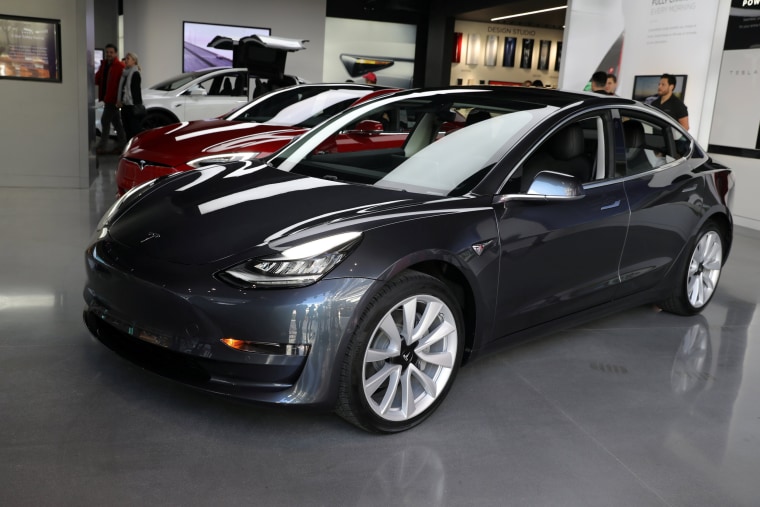Tesla CEO Elon Musk frantically tried to downplay a lack of recommendation for the Model 3 sedan from Consumer Reports on Monday, firing off a series of late-night tweets confirming that there are braking issues and saying that a software fix will be issued within days.
The influential publication isolated several problems, including a braking issue that it blamed for withholding the much sought-after recommendation for the electric sedan.
According to Consumer Reports, the Model 3 it tested took the longest time to come to a complete stop from 60 mph of any passenger car it tested. But Musk wrote in a tweet that, “With further refinement, we can improve braking distance beyond initial specs. Tesla won’t stop until Model 3 has better braking than any remotely comparable car.”
In his series of tweets, Musk downplayed other CR concerns about things like wind noise and ride comfort, asserting that the magazine had tested early vehicles and that many issues have since been addressed.
The carmaker had taken a similar position following a much-publicized teardown of a Model 3 by Detroit-based Munro & Associates. The company, which helps automakers reverse engineer each other’s products, revealed significant problems, especially with fit and finish. “You can see the gaps from the moon,” CEO Sandy Munro said of the way body panels came together.
While some early reviews have been upbeat about the performance and attributes of the Model 3, Tesla’s first mainstream entry has also received some sharp criticism from media outlets like Edmunds.com. In a post this week, it said, "Sixteen weeks into ownership, we've had so many issues with our Model 3 that we started a shared Google Doc to catalog various warning messages, necessary screen resets and general failures,"
Whether such bad reviews will have much, if any, impact remains a matter of debate, however. “Right now, Tesla can’t build enough cars for all the people that want them, so it won’t make a difference,” said analyst Stephanie Brinley of IHS Automotive.
In fact, some observers contend the bigger problem is that Tesla simply can’t build the Model S fast enough to meet that demand. Musk recently acknowledged that some early reservations have been cancelled.
And there will be a wave of new all-electric models coming to market in the near future that will provide more alternatives to the Model 3 and the rest of the Tesla line-up. That includes two more products from General Motors due by early 2019, while Audi, Porsche, Tesla and Jaguar are also bringing out pure battery-electric vehicles in the near-term.
With Tesla running short of cash, the company is on a race to boost production quickly. Last week it indicated it was rolling out around 500 vehicles a day, or 3,500 a week on a seven-day schedule. That’s a big increase from the barely 2,000-a-week production rate it hit at the end of March, 20 percent short of its stated goal. Meanwhile, it is aiming for 6,000 weekly by the end of the second quarter. But Tesla’s Fremont, California plant will have to get to 10,000 a week to meet its original target, and it is unclear when that will happen.
As long as Tesla continues to have more reservations than vehicles, it should be able to skate past bad reviews, said Brinley, but as it begins catching up, it will “make a difference” if its quality and reliability aren’t world class.
Tesla could also become more vulnerable to reports about safety issues. At least two fatal accidents are now being probed by the National Transportation Safety Board.
